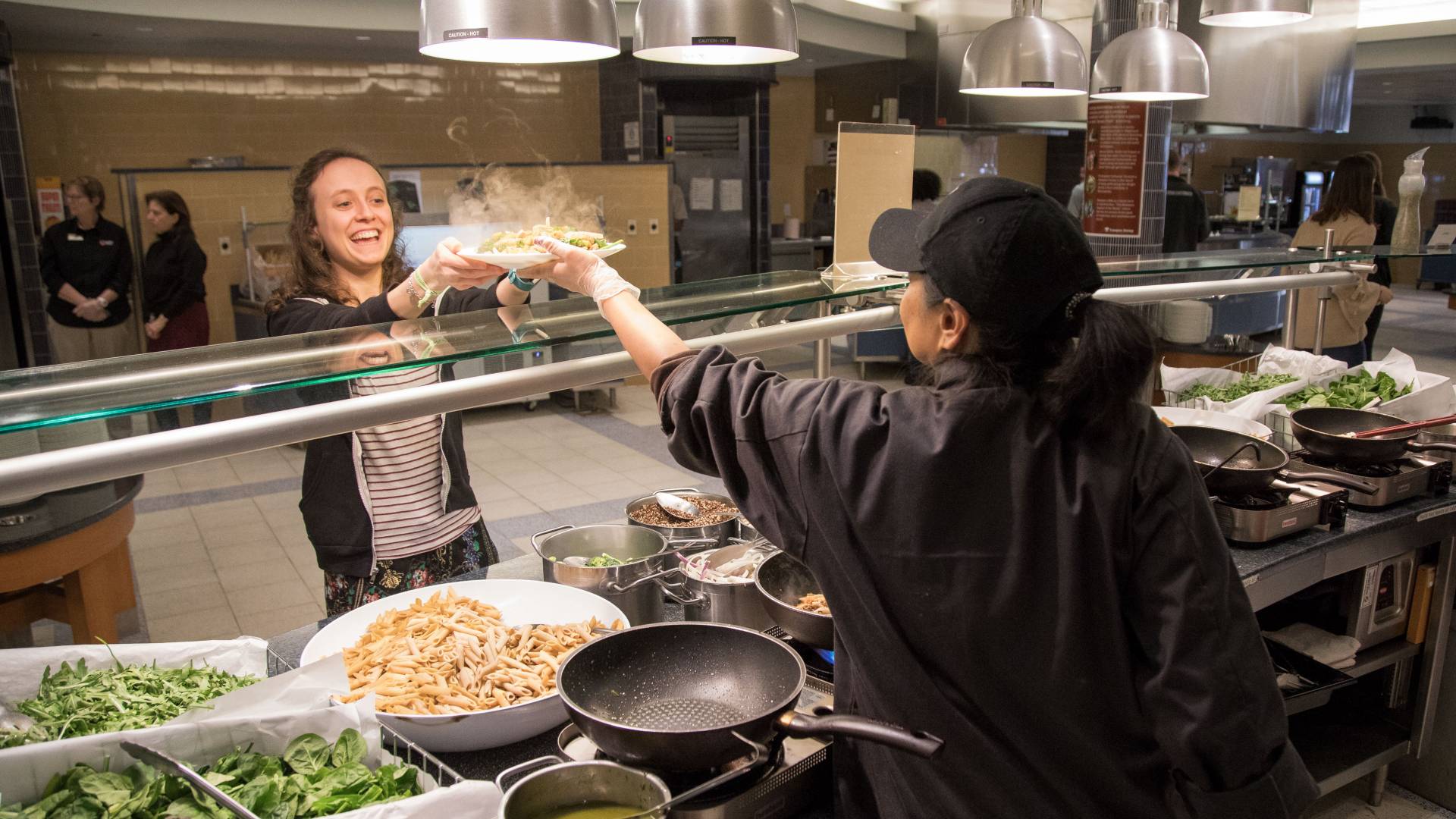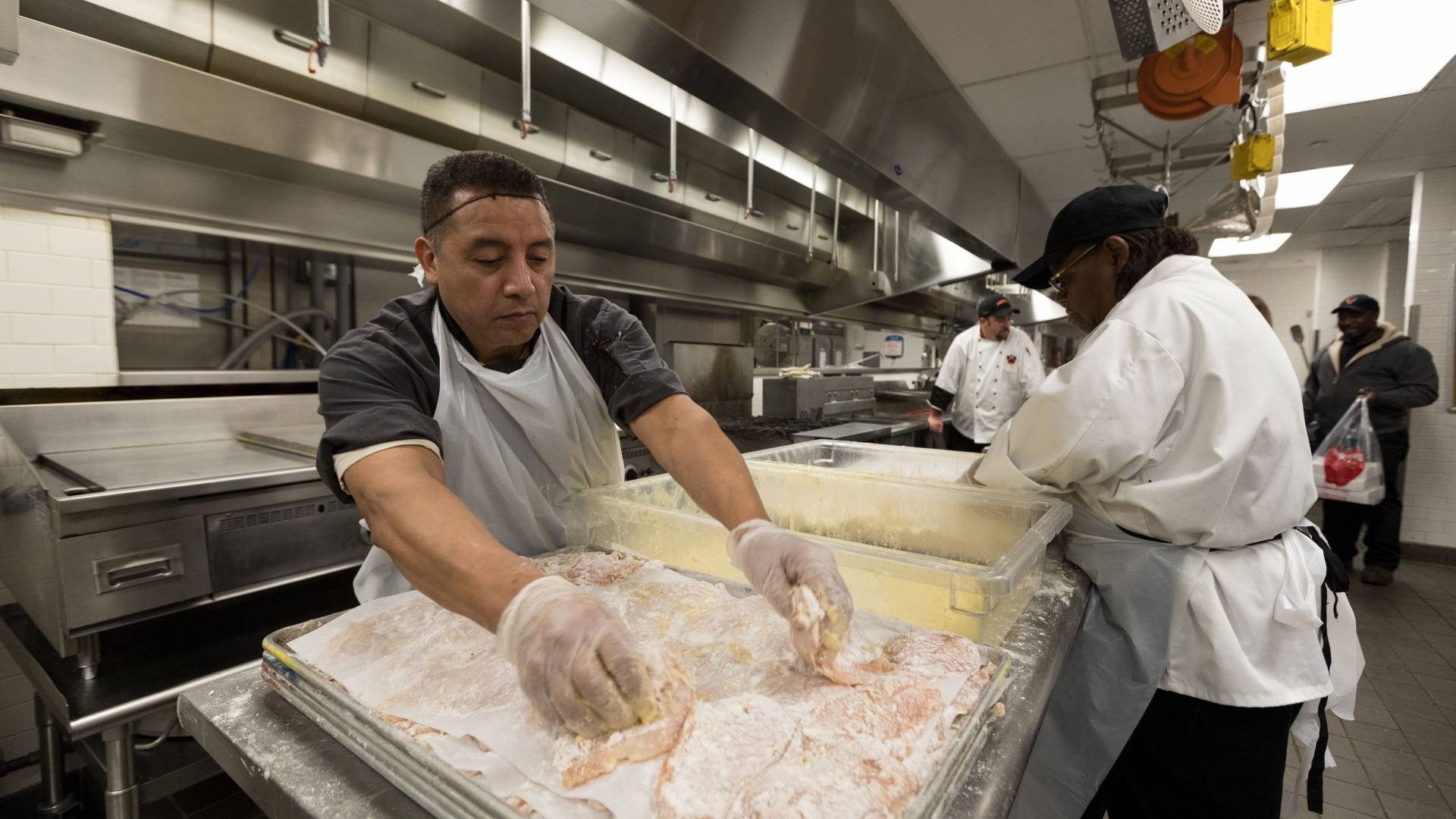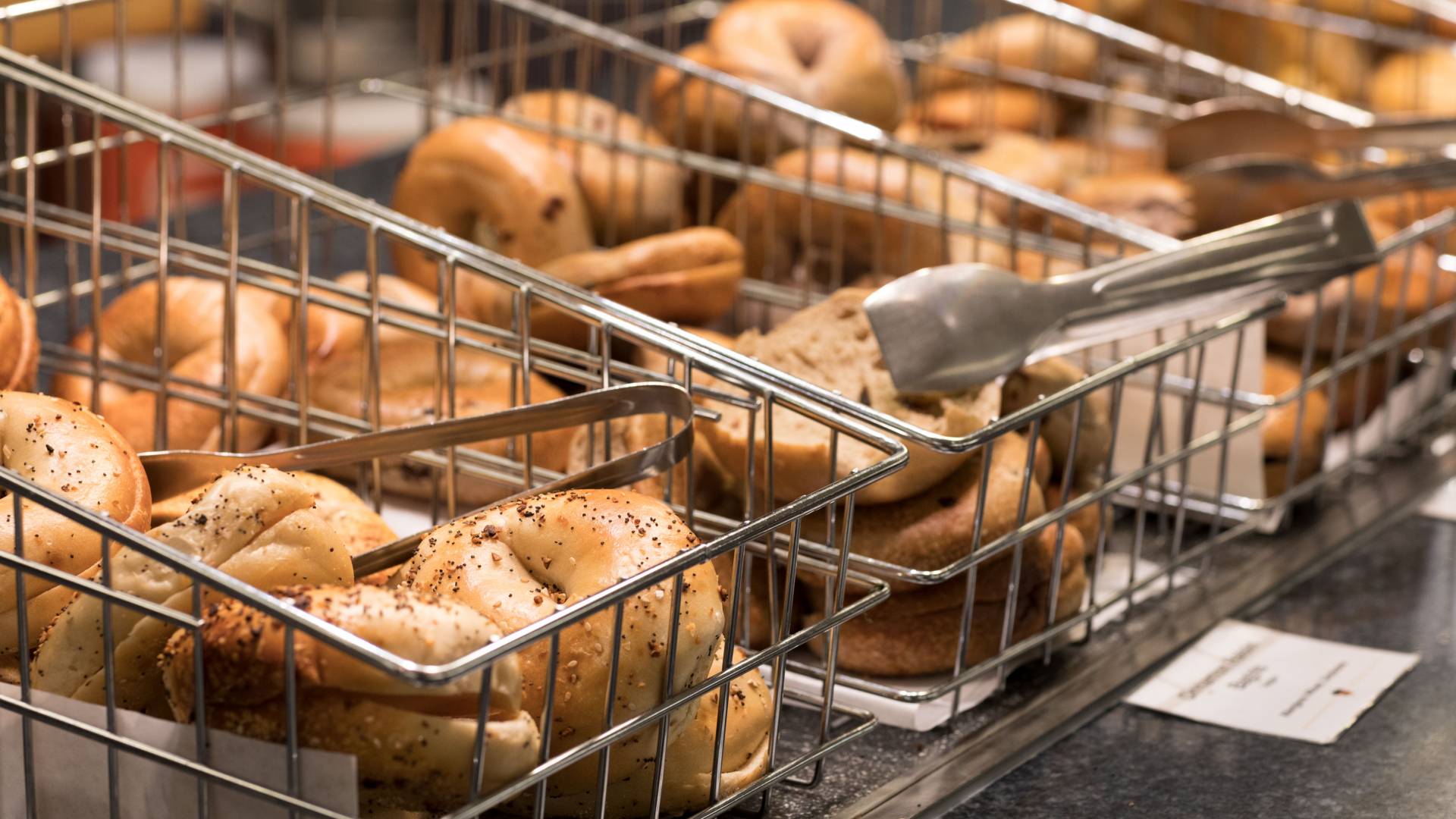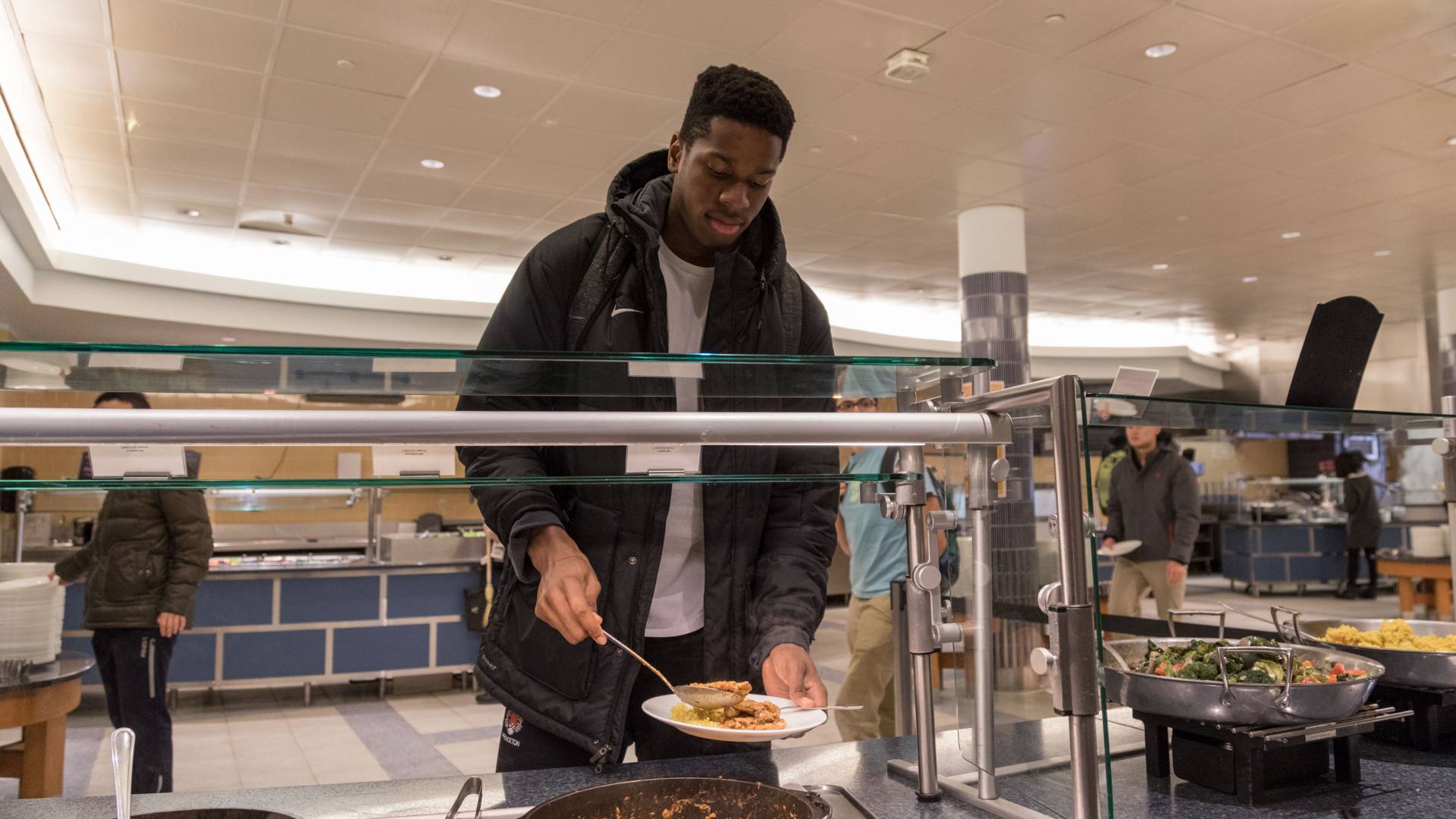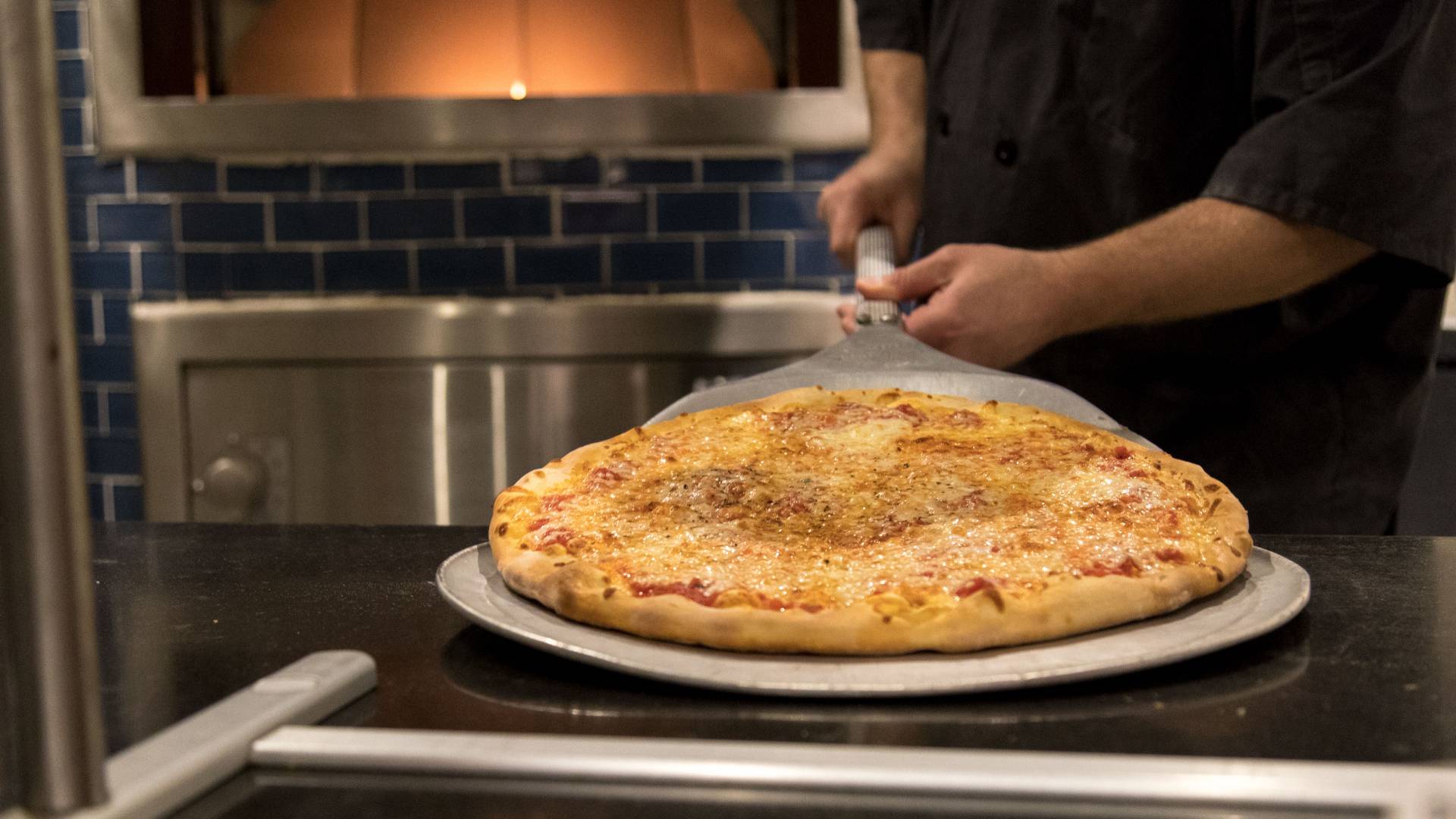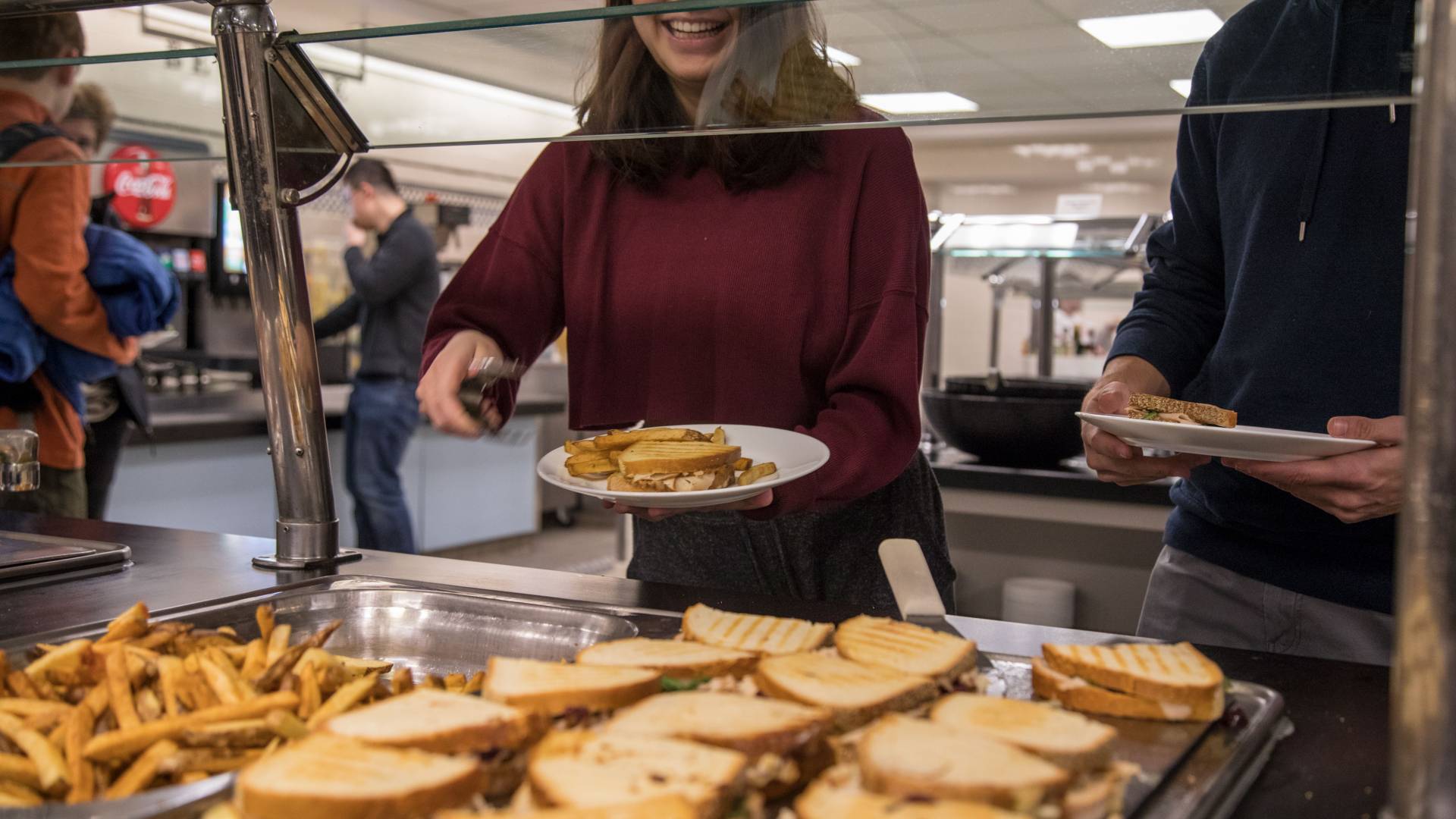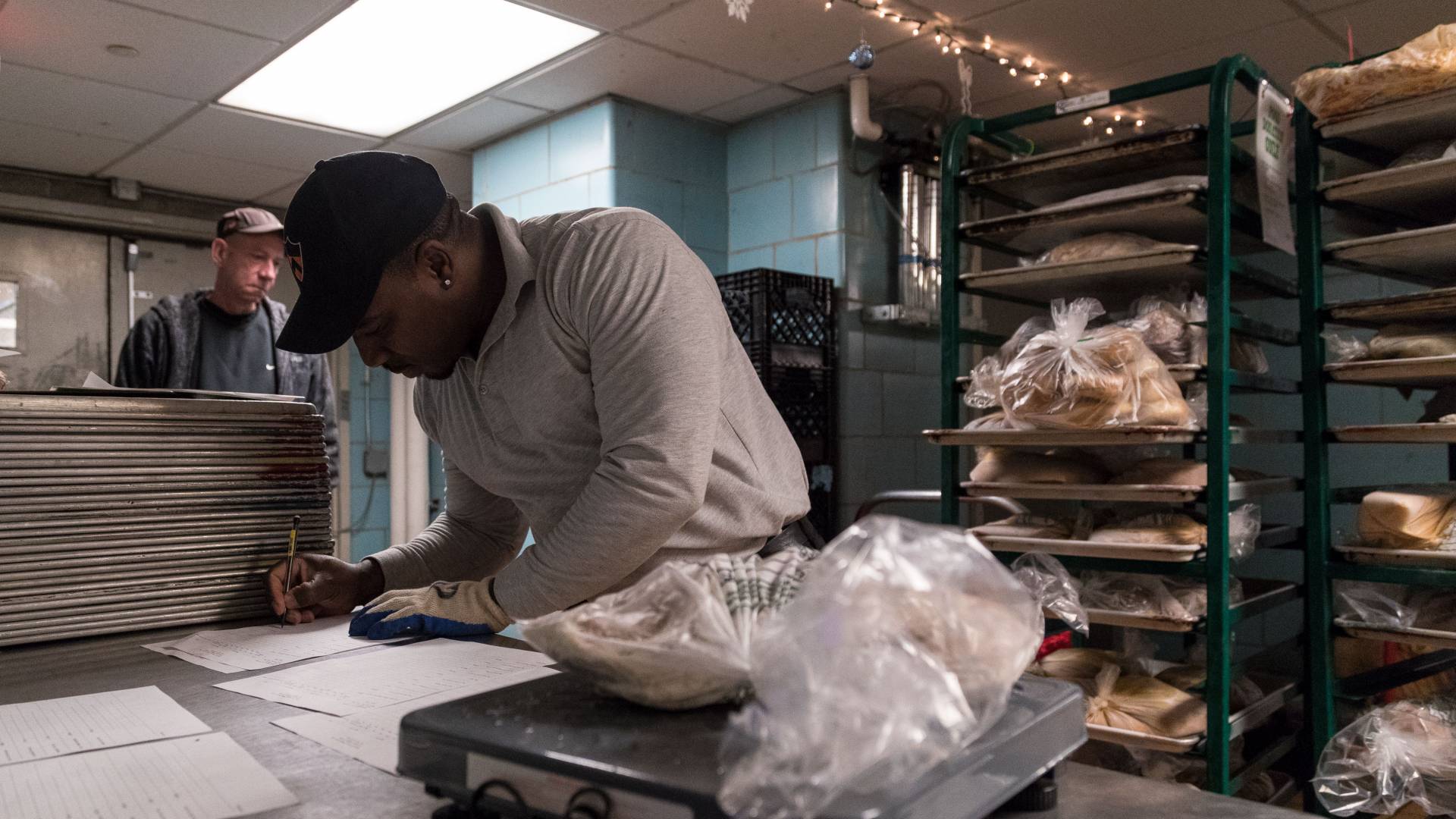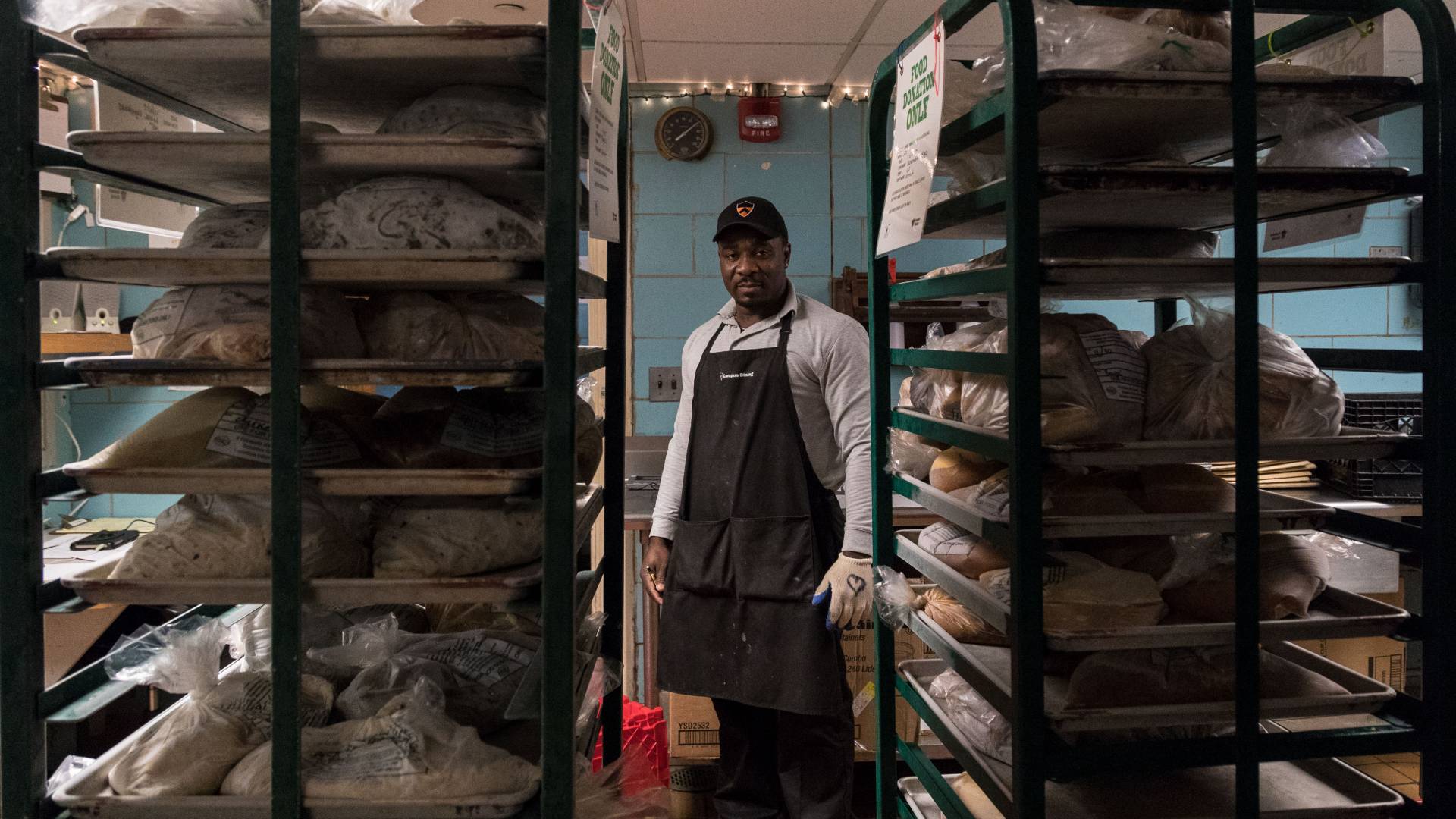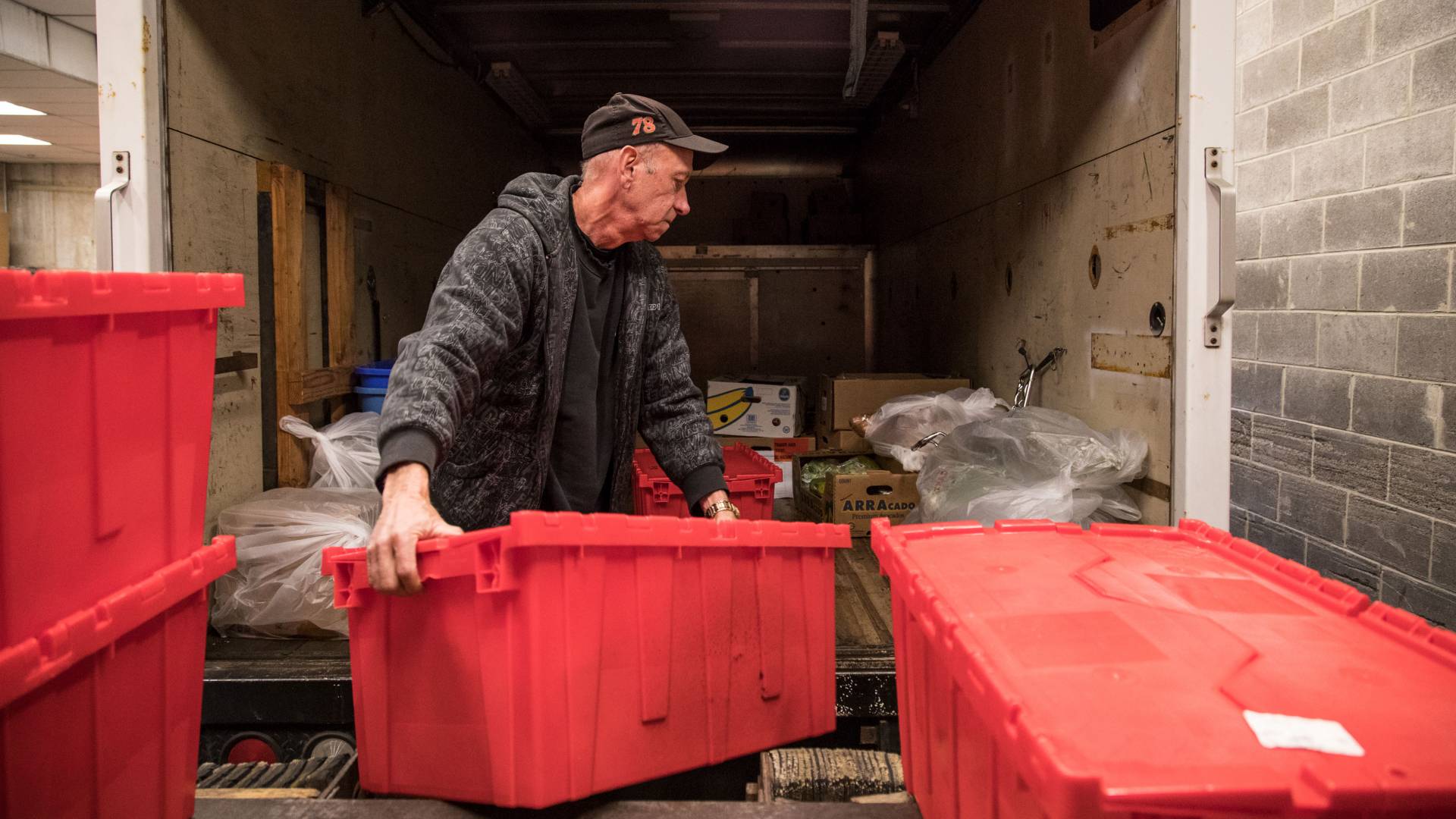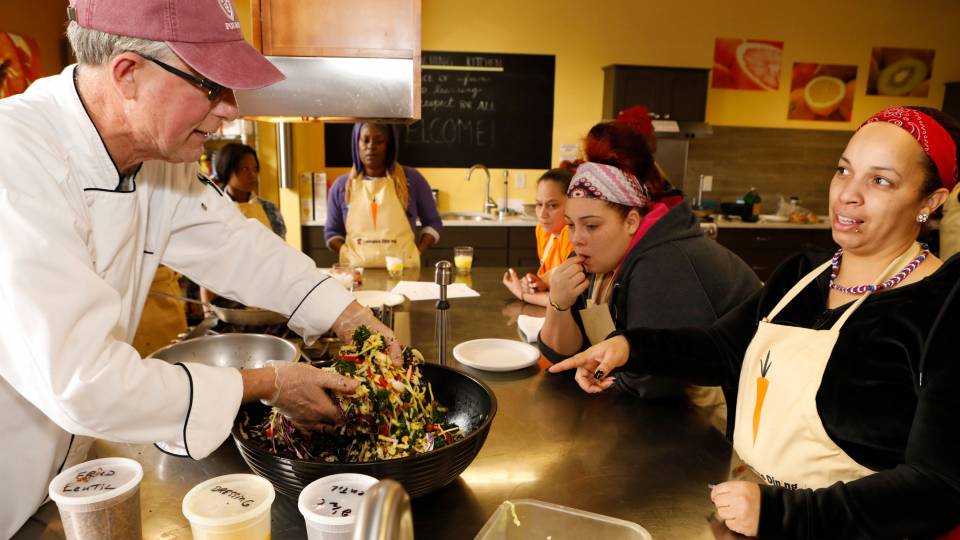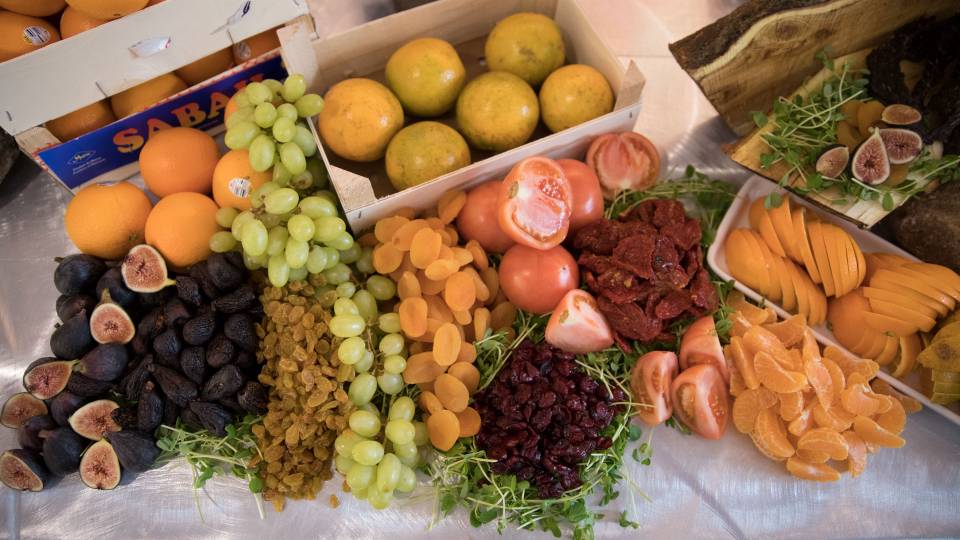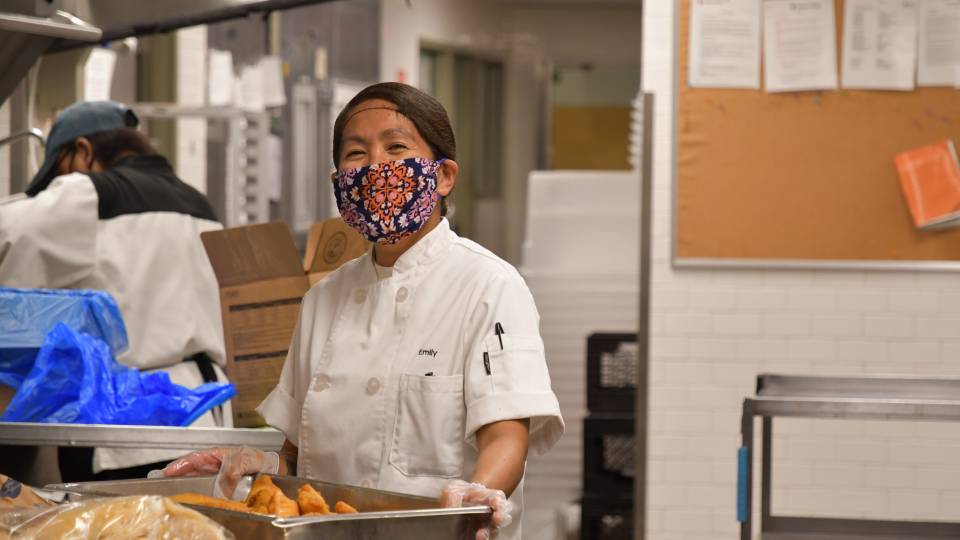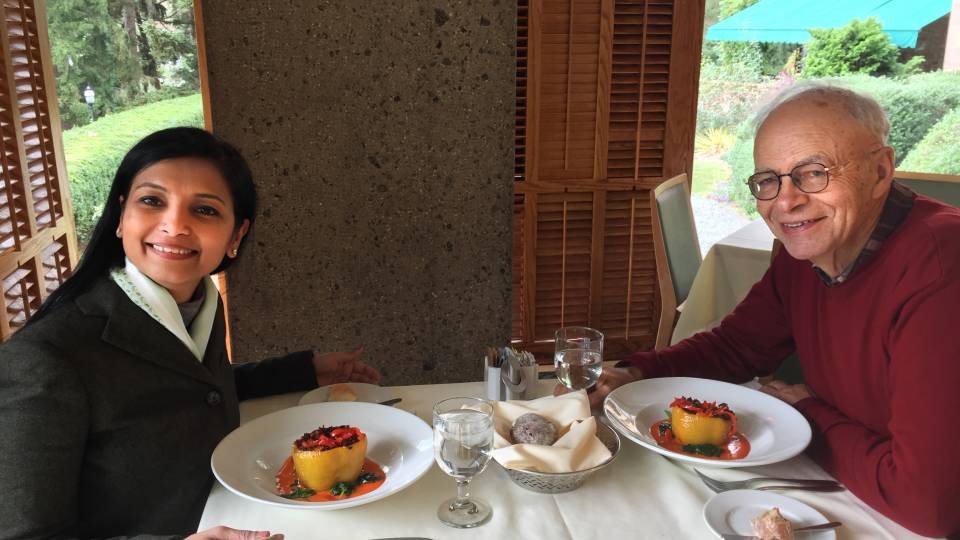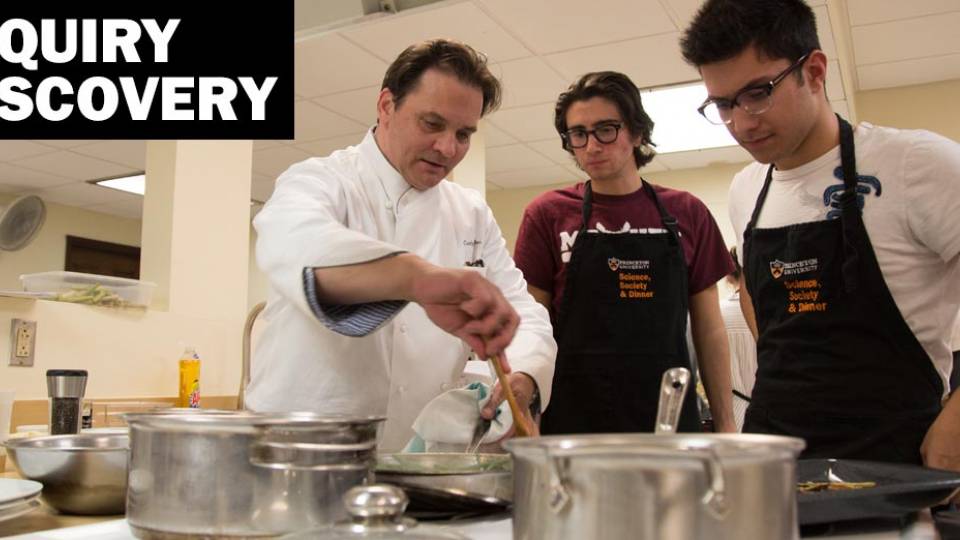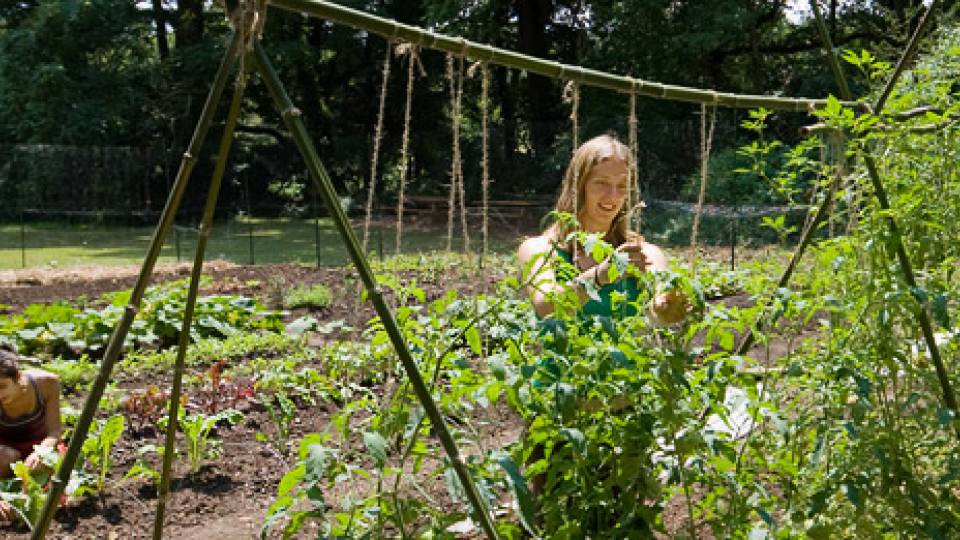If you step into a dining hall any day on Princeton’s campus, you’re presented with a vast array of cuisines from around the world.
Though portions are carefully calculated, some food goes untouched at the end of meal periods. While Campus Dining has had a composting initiative for 20 years as part of its sustainability efforts, there was a communal feeling that the food could go toward a better cause.
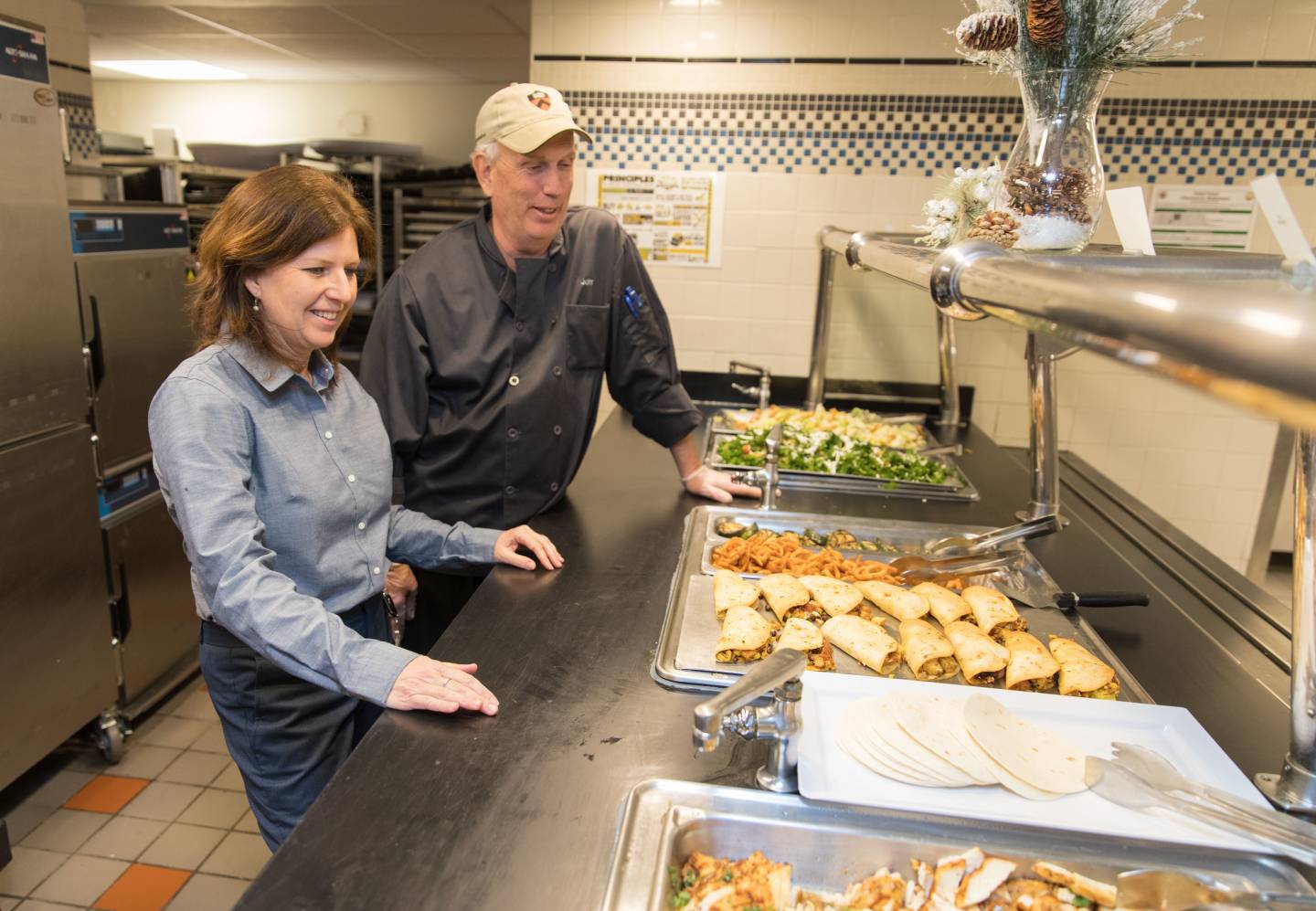
Sarah Bavuso, sustainability manager for Campus Dining, and John Studwell, a cook in Forbes Dining Hall, look over featured entrées during a Thursday lunch period.
Smitha Haneef, assistant vice president for Campus Dining in University Services, and Sarah Bavuso, sustainability manager for Campus Dining, had been meeting with chefs on campus as well as students in Greening Dining, a student group focused on adopting more sustainable practices in the dining halls. Working together, students, chefs and administrators began an effort to distribute the excess food to families in central New Jersey.
“As part of our vision, we are committed to being in service of our campus and our community,” Haneef said. “We take a one-ounce-at-a-time approach to reducing food waste. We recognized an opportunity to divert edible food away from composting and landfill, which only strengthens our program.”
“You can look at communities around Princeton and see how many families there are in need of help. We really wanted to take the food that we spend so much time preparing and give it one last chance to feed another person or family,” Chef Dan Maher said.
The process of getting the food to the community involved a series of steps. Aside from following a strict logging and packaging process to adhere to health codes, Bavuso faced a larger challenge.
“After many months of trying to find a charity to accept our prepared foods, we found the Food Donation Connection,” Bavuso said. “They are a nonprofit that connects those with food with those in need. They took great care in matching us with an amazing harvest partner.”
Bavuso and her team settled on Bentley Community Services, a nonprofit corporation whose South Brunswick, New Jersey, facility serves working middle-class families who are just making ends meet.
The food donation program began last fall with Butler College and Wilson College, and it now includes the Forbes College Dining Hall. The founders of Bentley Community Services, Dorothy Stearns and Brant Holmes, are delighted to have partnered with Campus Dining.
“Princeton provides us with a wide variety of food that changes our whole distribution process,” Stearns said. “An entire family can eat out of one of the bags of pasta with marinara, French toast, eggs or chicken cacciatore.”
Stearns added that organizations like Bentley are equally beneficial for the broader community.
“We help divert high-quality goods from restaurants and markets in the area that would otherwise end up in compost. We practice food sustainability as well as financial sustainability,” she said. Bentley not only helps feed the families it serves — the group also assists them in monitoring and managing their finances. It also requires each family to volunteer time to the organization and eventually graduate from its program.
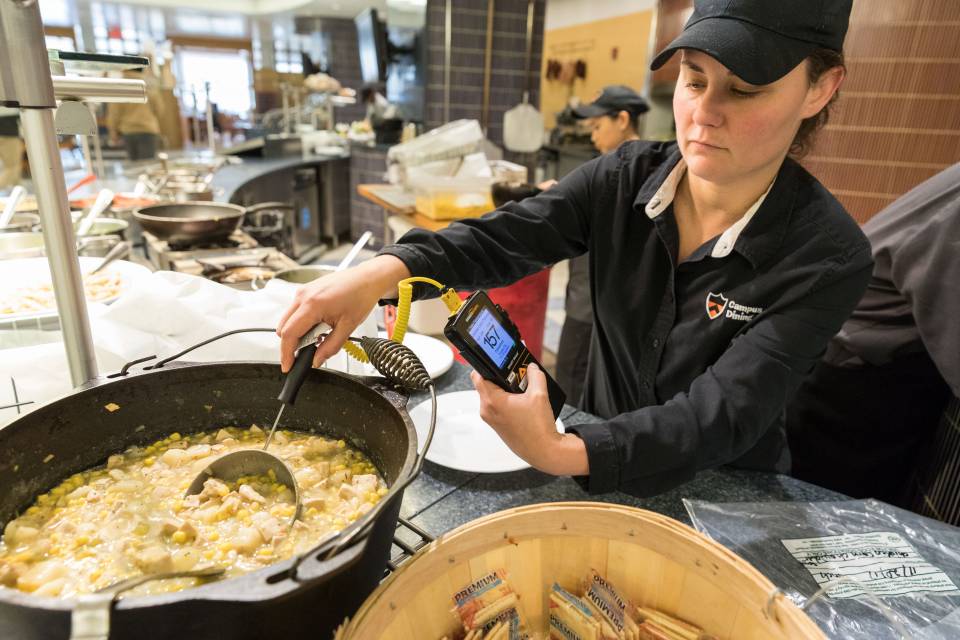
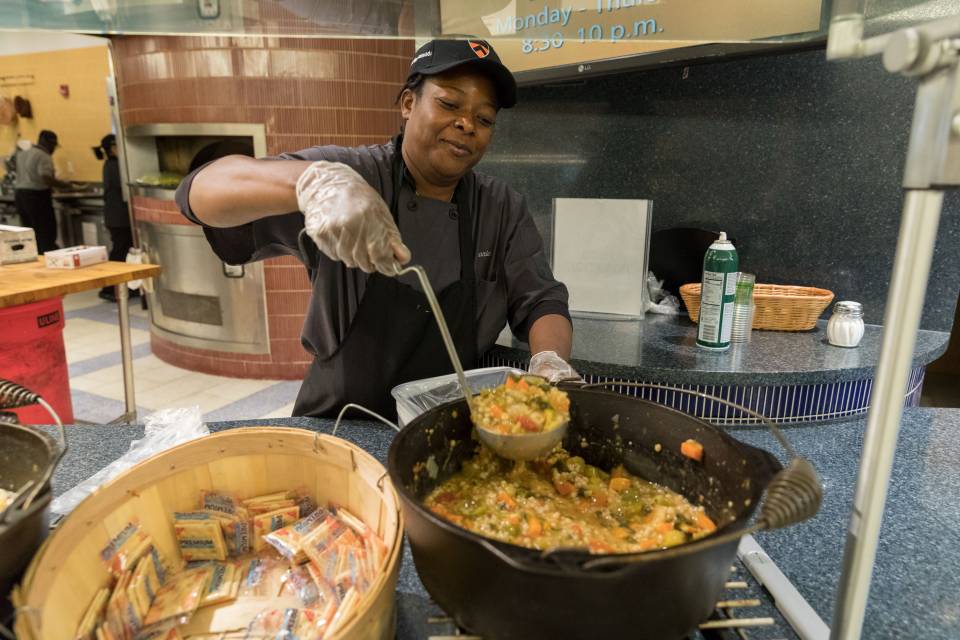
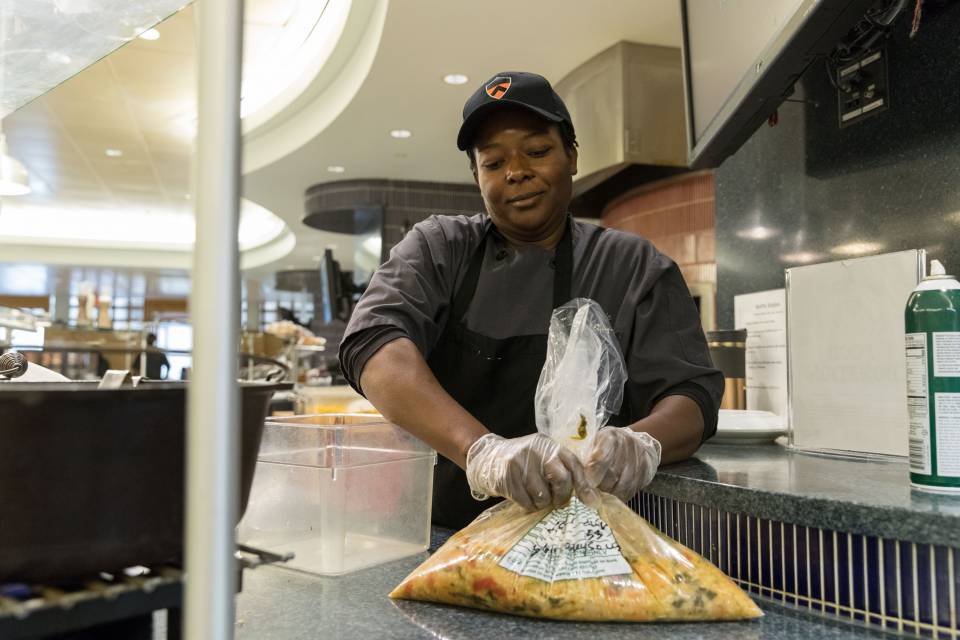
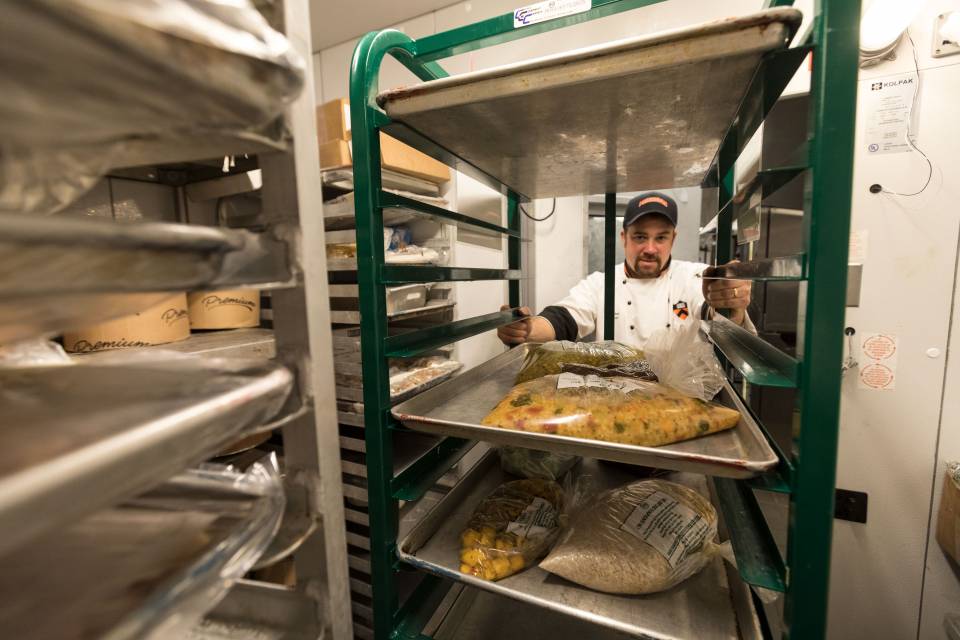
At the end of a meal, wellness manager MartiAnn Schenck checks the temperature of the remaining food to ensure that it is still within a safe range.
Residential food service worker Leonie Laloi-Joseph ladles leftover vegetable barley soup into a bag for storage.
Laloi-Joseph removes the air from the bag and ties it so it’s ready for freezing.
Chef Dan Maher places the bagged food on trays and moves it to the freezer to keep it as fresh as possible for the food harvesting program.
Greening Dining co-presidents senior Cecilia Shang and junior Shun Yamaya, along with their members, worked with Campus Dining on the food harvesting program and on efforts to make students aware of food waste, such as setting up food waste weigh-in stations at the plate return in dining halls. They sorted the waste from the bins and were able to construct multiple full plates from the amount of untouched food found in them and shared their findings on social media.
“We all live in such an abundance of excess food in the world, and it’s great to be able to divert the food we don’t finish,” Shang said. “On an individual scale, you think one little bit doesn’t make a difference, but it definitely adds up.”
“Growing up in Japan, I was taught not to leave any food on the plate,” and not just so he could have dessert, Yamaya said. “It was more so coming from a place of gratitude. Even leaving one grain of rice would be a disservice to it. It would be a disservice to my mother who made it, the farmers who produced it and whatever other forces went into making this rice.”
While Campus Dining aims to eliminate food waste through its planning and purchasing, Maher said that they inevitably have days that are less busy than expected. There is always going to be a “little bit of something that can be reused,” Maher said. “Five or six portions to a family of three is almost two meals.”
Campus Dining plans to incorporate the food harvesting program into each dining hall to give a bit of extra help to those who need it most in the surrounding community.
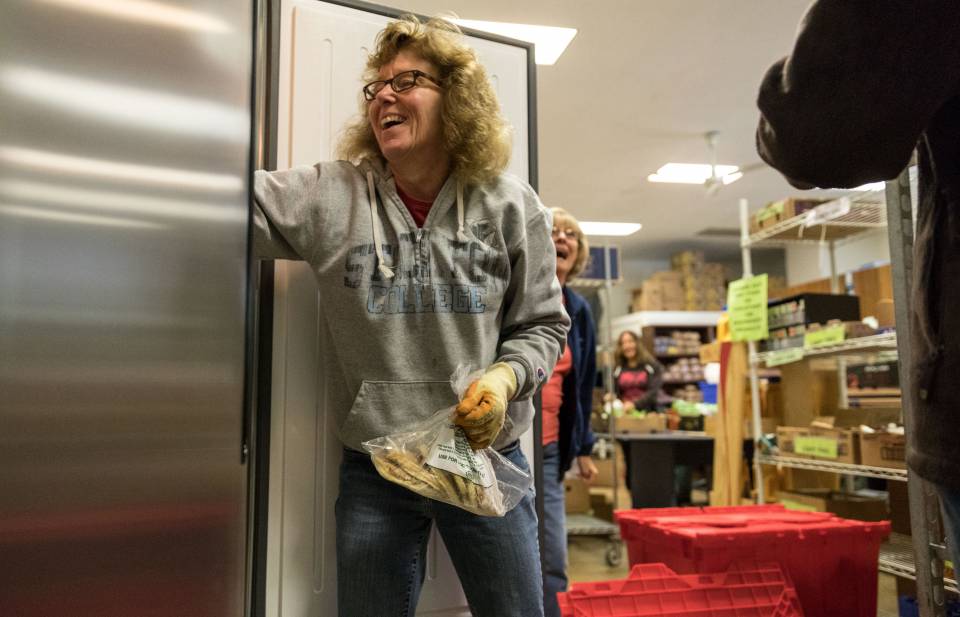
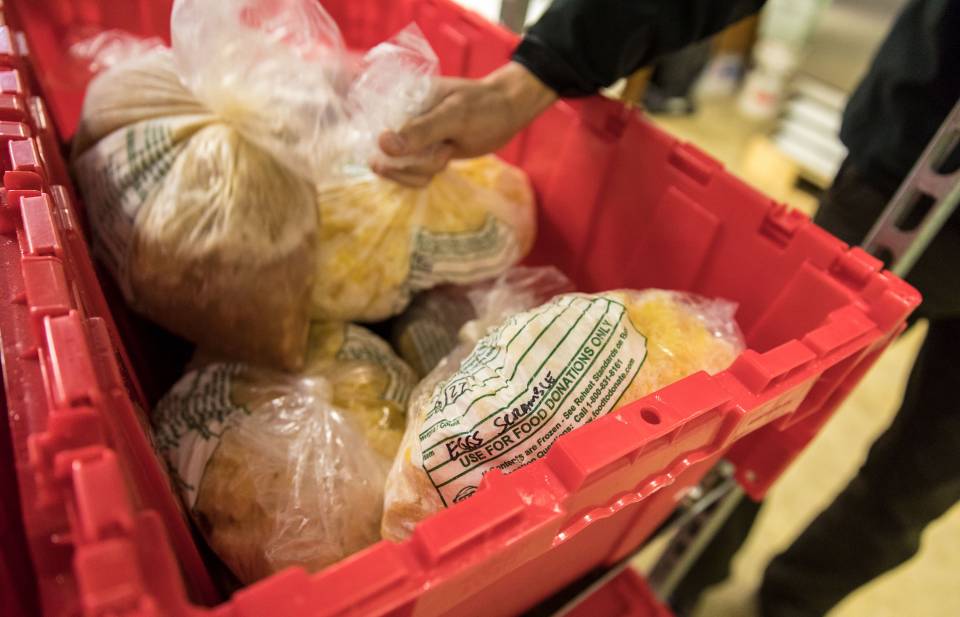
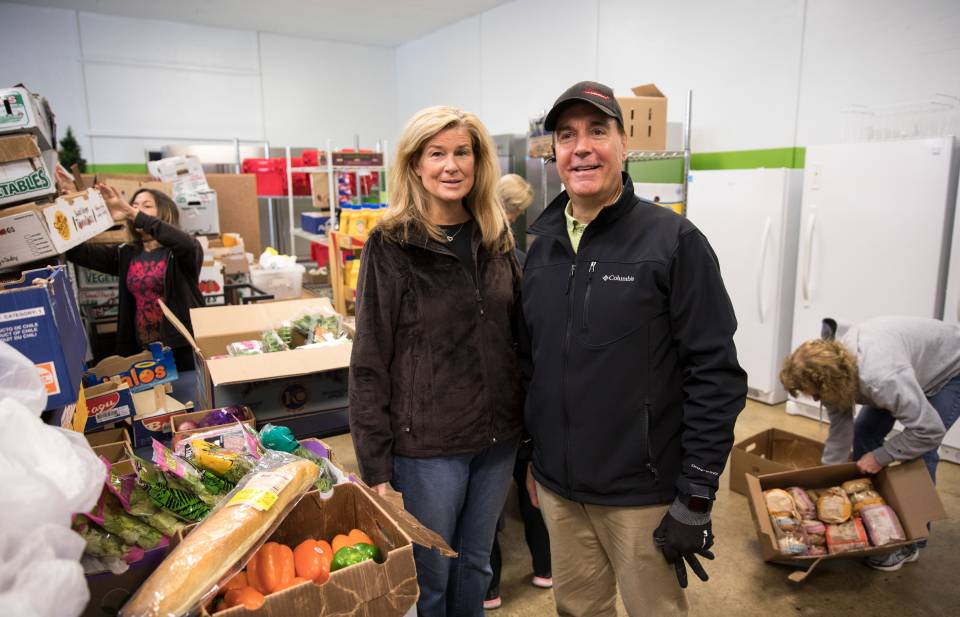
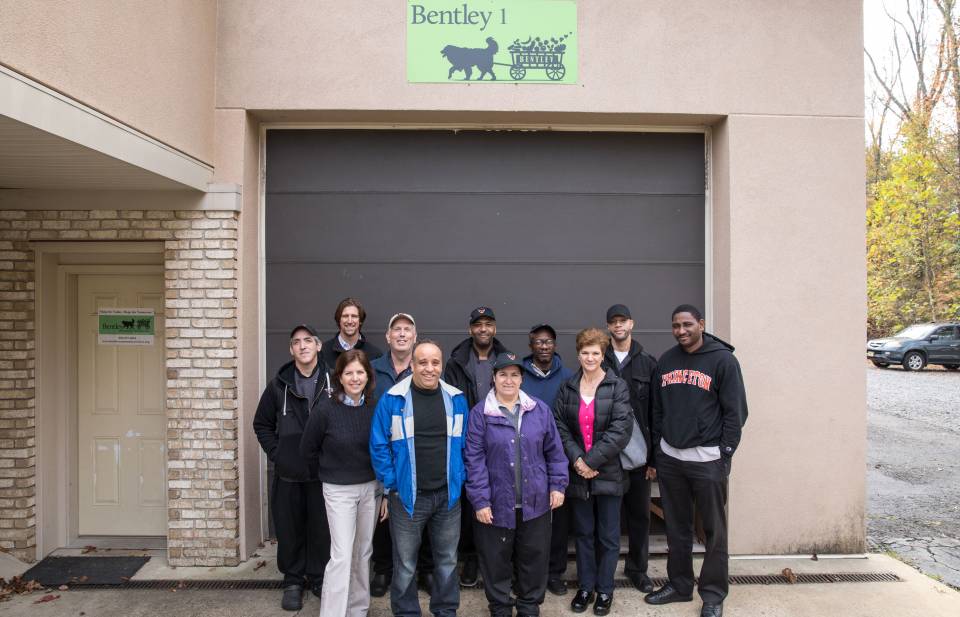
Bentley community volunteer Kathy Sanford stocks the food into freezers for families to choose and enjoy.
The bags of frozen food contain a variety of cuisine from Campus Dining.
Bentley co-founders Dorothy Stearns and Brant Holmes oversee a morning delivery.
Campus Dining staff arrive at Bentley for a tour of the facility.
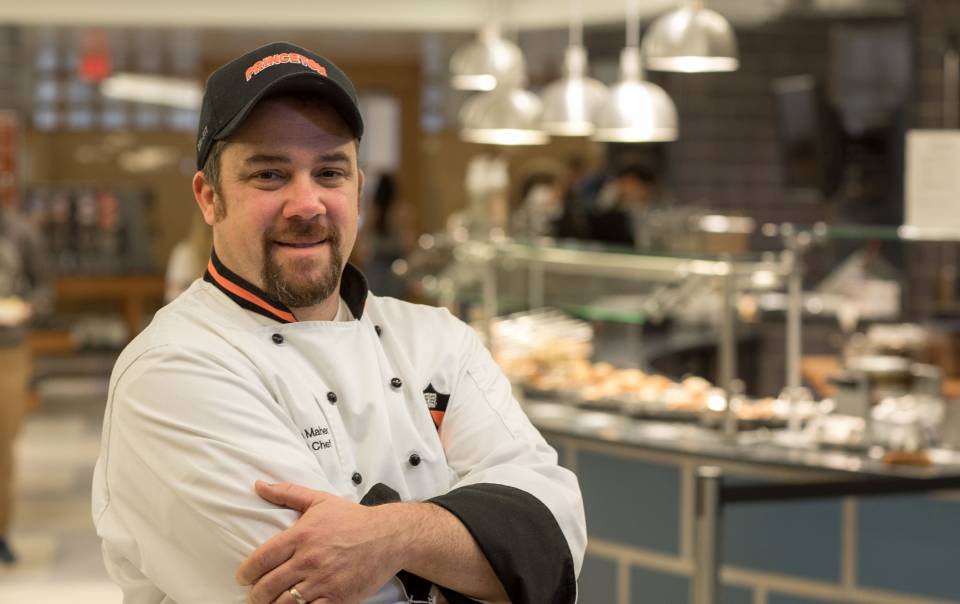
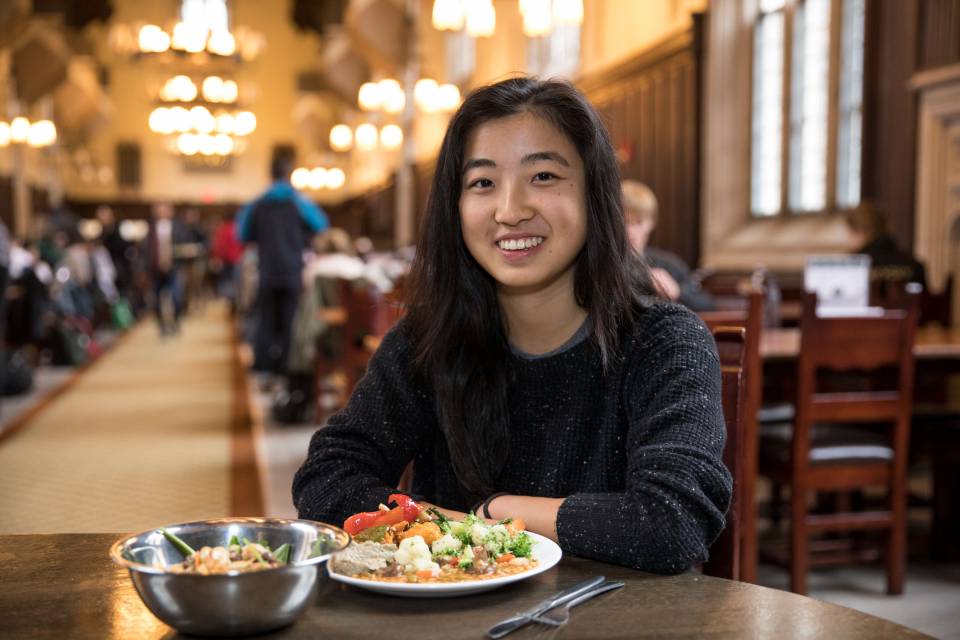
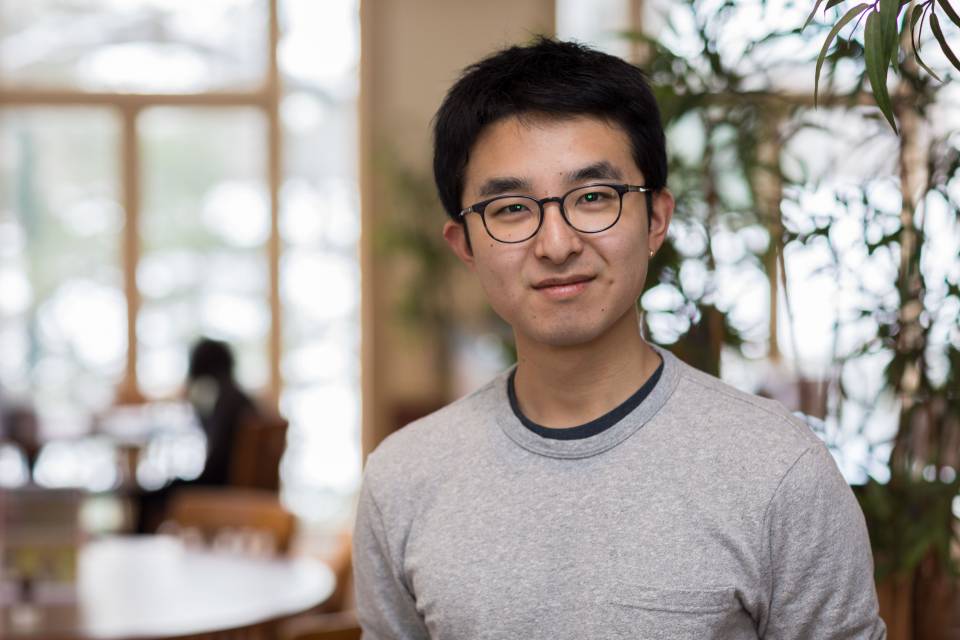
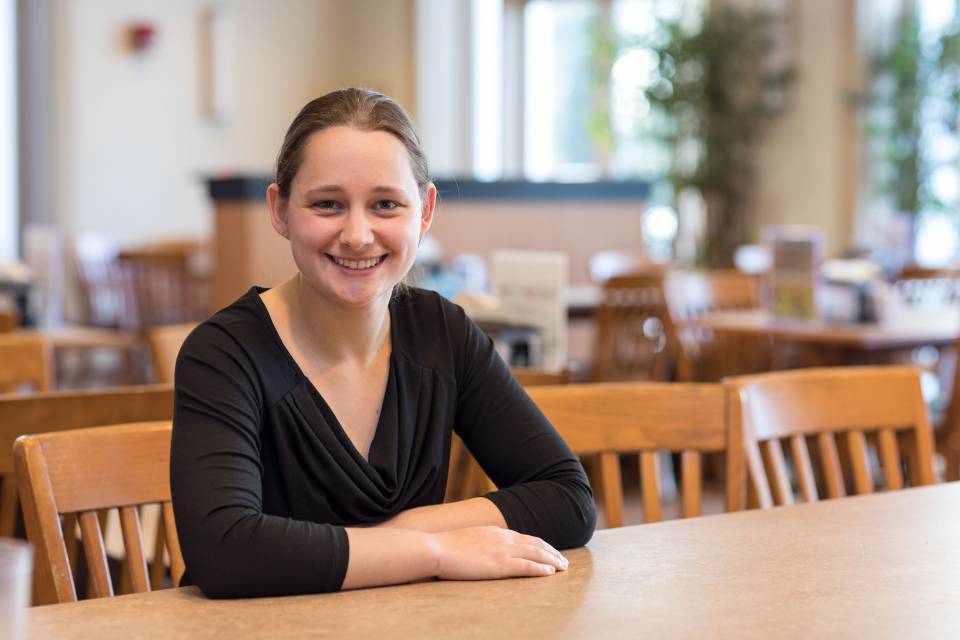
Chef Dan Maher is chef de cuisine for the Butler College and Wilson College dining halls.
Senior Cecilia Shang is co-president of the student group Greening Dining.
Junior Shun Yamaya is co-president of Greening Dining.
Senior Lydia Watt, a member of a student food donation group, said that the food harvesting program, while effective in battling local economic inequality, “generates a larger consciousness of sustainability. Food waste and food overproduction, and the environmental problems associated with them, are incredibly significant to how we live our lives.”
